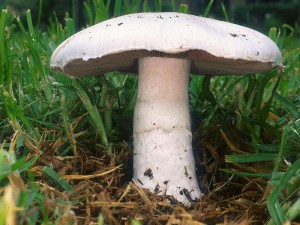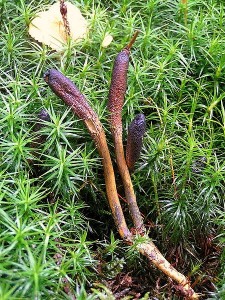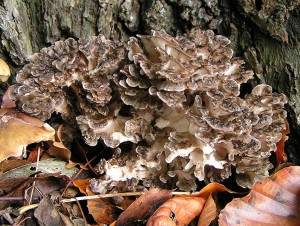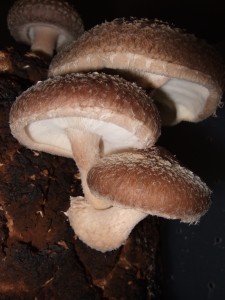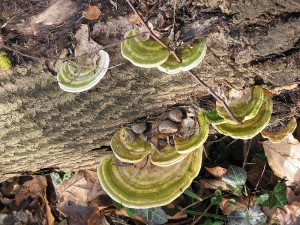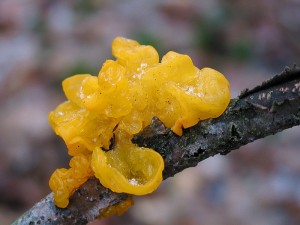Medicinal mushrooms
2012
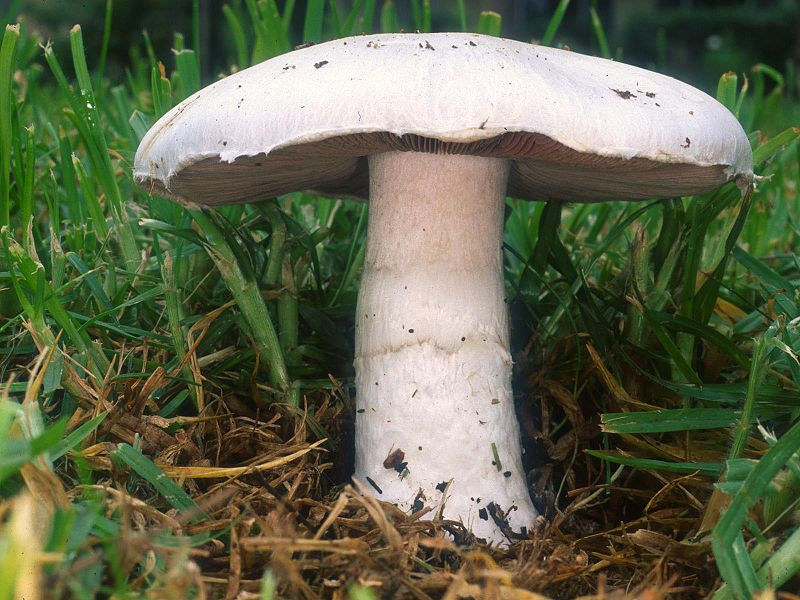
Medicinal mushrooms are mushrooms that are used or studied as possible treatments for diseases. Research indicates mushrooms have potential antiviral, antimicrobial, anticancer, antiinflammatory, antihyperglycemic, and cardioprotective benefits.
About – Mushrooms have been cultivated for food and of medicine for millennia. The ancient Egyptians considered mushrooms food for royalty and they are included in ancient pharmacopoeias from China, India, and Hungary. The West is catching on to what the East has known for thousands of years, that mushrooms are beneficial to health; they increase immunity and provide vital nutrients,. They have even been shown to fight cancer. Research suggests mushroom extracts may act as biological response modifiers with anticancer activities and while their anti tumor properties are not completely understood, they do appear to be effective. Several of the mushroom polysaccharide compounds have proceeded through phases I, II, and III clinical trials and are used extensively and successfully in Asia to treat various cancers and other diseases. Many of the most powerful medicinal mushrooms like Reishi and Maitake grow wild all over North America.
Agaricus – is possibly the largest genus of mushrooms with over 300 different varieties, although the most common ones: the white button mushroom, the crimini and the portabella are all from the Agaricus bisporus strain. These edible mushrooms have high protein content, and are an excellent source of fibre, vitamins, and some minerals.
Recent research shows that these common mushrooms provide as much potential to fight cancer and reduce blood pressure and cholesterol as other varieties. All mushrooms are antioxidant rich and contain a wealth of nutrients and minerals including: iron, selenium, potassium, phosphorus, riboflavin, copper, zinc and also they have polysaccharides, which are phytonutrients with anti-cancer properties. Their antioxidant L-ergothionein is found in studies to help prevent Alzheimers and other cognitive disorders.
Most scientific research has been done with Agaricus blazei for its effects on the human immune system or for cancer treatment. It has been found to contain a special class of polysaccharides known as beta glucans, which boost our immune system by stimulating the activity of natural killer cells.
Cordyceps – has been recognized for centuries and has long been used in traditional Chinese medicine for: restoring energy, treating lung problems, strengthening kidney functions and for longevity and quality of health. The cordyceps fungus attacks a host, which the mycelium invades and eventually replaces. The stroma, its elongated fruiting body may be cylindrical, branched, or of a complex shape. Marks have been found on fossilized leaves which suggest the cordyceps ability to invade its host evolved more than 48 million years ago. The cordyceps genus has approximately 400 species and is found worldwide.
Cordyceps achieved worldwide recognition in 1993, when three women Chinese athletes set new world records in the National Games in China. Their coach attributed their success to intensive training and supplementation with the cordyceps mushroom. Studies have shown that cordyceps, which significantly increases maximal oxygen uptake and the anaerobic threshold. This may lead to improved exercise capacity and resistance to fatigue as well as numerous other health benefits. Cordyceps has had much testing and numerous health benefits have been found.
Cordyceps has anti-inflammatory properties. It benefits the vascular system by improving circulation, regulating blood pressure, and strengthening the heart muscle. It helps in fighting against cough, chronic bronchitis and asthma, as it relaxes and supports bronchial walls. It protects the liver and kidneys through metabolizing and excreting toxic substances as well as improving blood flow to these organs. Cordyceps is a powerful antioxidant and benefits cellular formation, especially in elderly patients. It is known to enhance and strengthen the immune system, as well as reduces fatigue. It promotes a more restful sleep, soothes the nervous system and thereby reduces anxiety. In addition, Cordyceps promotes natural vitality and increases libido by stimulating the production of sex hormones. It may also be a means for fighting female infertility.
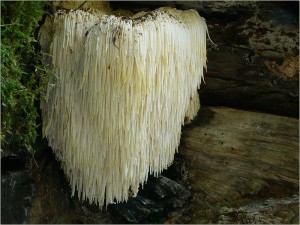
Lion’s Mane Mushroom – has been highly prized since antiquity in China, where at one time it was eaten exclusively by the Emperors. It is claimed to give nerves of steel and the memory of a lion to the privileged few who were allowed to east this restricted delicacy. The medical benefits of Lion’s Mane mushroom were well known then, as now, as a curative for problems of the digestive tract such as stomach and duodenal ulcers, as well as for cancers of the esophagus, stomach and duodenum. It is the beta glucan polysaccharides, along with polypeptides and fatty acids that are responsible for these curative effects. Studies have shown that these, along with adenosine and oleanolic acids, stimulate the immune system and boost the white blood cell count, helping in the healing process. These substances also exhibit anti-inflammatory effects. Lion’s Mane has also been shown to help regulate blood sugar and cholesterol levels. It is completely safe and shows no signs of toxicity or side effects in any scientific research. One of its greatest areas of potential is its ability to help combat some of the symptoms and underlying causes of dementia and Alzheimer’s disease as well as neurological dysfunction. One of the world’s leading mycologists. Paul Stamets, claims that “Lion’s Mane mushroom mycelium is nature’s nutrients for your neurons.” Research has also shown very positive results in other neurological disorders, such as Attention Deficit Disorder as well as with fatigue and as well, infertility in both male and females.
Maitake – is a polypore mushroom that grows in clusters at the base of trees, particularly oaks. Maitake, meaning dancing mushroom in Japanese, is also known as Hen of the Woods in English, because of its appearance as it resembles the fanned out tail feathers of a hen. Maitake is native to the northeastern part of Japan and North America and is well known in Chinese and Japanese herbology as a medicinal mushroom, used largely to balance the body systems. Maitake is a perennial fungus that often grows in the same place for a number of years in succession. It grows from an underground tuber-like structure, about the size of a potato. The fruiting body is a cluster growing as large as 60 cm of multiple grayish brown caps which are often curled or spoon-shaped. In Japan maitake can grow up to 50lbs (20 k) earning it the title “King of Mushrooms”. It is a major culinary mushroom in Japan. Maitake is classified as an adaptogen, which means it helps you adapt to stress by regulating functions such as digestion and circulation and by flushing out toxins and maintaining normal cell functions. The body of the mushroom contains polysaccharides that are well absorbed when consumed orally. These polysaccharides are thought to enhance immunity and fight diseases. One substance in maitake which may be responsible for many of its health benefits is called grifolan, a polysaccharide that boosts the immune system and according to studies may inhibit the growth of cancerous tumors, prevent carcinogenesis, kill HIV and stimulate important immune cells known as T-helper cells. Maitake is also rich in ergothioneine, a potent compound that has strong antioxidant properties and provides cellular protection within the human body. It is also anti-viral and may also reduce blood pressure and blood sugar. Beta-glucans is another beneficial substance in maitake that is able to stimulate white blood cells and engulf foreign particles including cancer cells, bacteria, and cellular debris. They protect against cancer by attacking tumor cells directly.
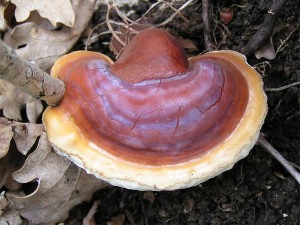
Reishi – is commonly known as Ling Zhi in Chinese, which means ‘spiritual potency’. Reishi is a herbal mushroom that has been known for over 4000 years and believed to have miraculous health benefits. It is regarded by the Chinese as the ‘Medicine of Kings’. Reishi mushrooms usually have an antler or rounded, fan shape and the most popular type of reishi is red, which is just one of the six colors in which they grow. This mushroom is primarily composed of complex carbohydrates called water-soluble polysaccharides, triterpeniods and amino acids. Researchers have discovered that its polysaccharides are the most active element in Reishi and that they lower blood pressure, have anti-tumor properties and are beneficial to the immune system. Reishi also contains triterpenes, called ganoderic acids, which help to alleviate common allergies by inhibiting histamine release. As well, they improve oxygen utilization and improve liver functions. Triterpenes are bitter in taste and the amount of triterpene contained in a product can be determined by its bitterness. In studies, reishi has been shown to improve immune function, blood circulation, inhibit the growth of some malignant tumors and act as an anti-inflammatory agent. Reishi is also used to help treat anxiety, high blood pressure, hepatitis, bronchitis, insomnia, and asthma. Reishi is an adaptogen and is often recommended as a general tonic.
Shiitake – is an edible mushroom native to east China and Japan and have been grown in both places sine prehistoric times. Shitakes have been used medicinally for over 6,000 years and are a symbol of longevity in Asia because of their potent health benefits. It is a feature of many Asian cuisines and in the East, has long been considered a delicacy as well as a medicinal mushroom. Shiitake mushrooms have brown, slightly convex caps that are from about two to four inches in diameter.
Studies have traced the legendary benefits of shiitake to an active compound contained in these mushrooms called lentinan, which has been found to boost the immune system. In fact, studies have found this compound to be even more effective than prescription drugs for treating flu and other viruses, and it may improve the immune systems of people with HIV. Lentinan, which is technically classified as a polysaccharide and referred to as a branched beta-glucan, has also been shown to have anti-cancer activity by ingesting bacteria as well as cancer cells. Another powerful antioxidant, L-ergothioneine, has been discovered in mushrooms. Many studies have further shown that another active component in shiitake mushrooms called eritadenine lowers cholesterol levels. Shitakes have been shown many times over to have very strong anti-cancer and cholesterol lowering properties.
Trametes – also called Turkey Tail, as its appearance very much resembles the tail of a wild turkey, is a genus of fungi or mushroom. The Trametes genus has a widespread distribution and contains about fifty species. Trametes is recognized as a medicinal mushroom in Chinese medicine under the name yun zhi. The extract of this medicinal mushroom is the world’s most thoroughly researched supplement for immune health. There have been more than 400 animal studies and over a dozen placebo-controlled double-blind human clinical studies published in peer reviewed medical journals. Trametes is used to maintain, protect or restore immune health. It is suggested that this mushroom may be a potent cancer fighter and is currently being used to treat cancer in Asia.
Tremella – aka Snow Fungus, Wood Ear or Silver Ear Fungus, is a species of fungus producing white to yellow, almost transparent gelatinous fruit bodies, which feel like mucilage when touched. They are colloquially classed amongst the ‘jelly fungi’. The tremella mushrooms are parasitic on other fungi that grow on dead, attached and recently fallen, branches of broadleaf trees. Decomposing logs provide an ideal breeding ground for this variety of mushroom. This wobbly fungus is commonly found on various types of trees especially in the Asian countries and also other warm climates across the globe. Tremella has been used by Chinese and Japanese herbal medicine practitioners for over 2000 years now to heal various ailments. It has properties of a protective tonic is used for the Qi and for the immune system. It is used to combat infections, particularly those which are persistent in nature. Studies have shown it to fight tumor growth and to lower LDL ’bad’ cholesterol. It is also used to regulate the nervous system, to protect the liver, regulate body liquids and cure dry coughs. It is a stimulating herb and used also to for beauty, especially to improve skin tone.
